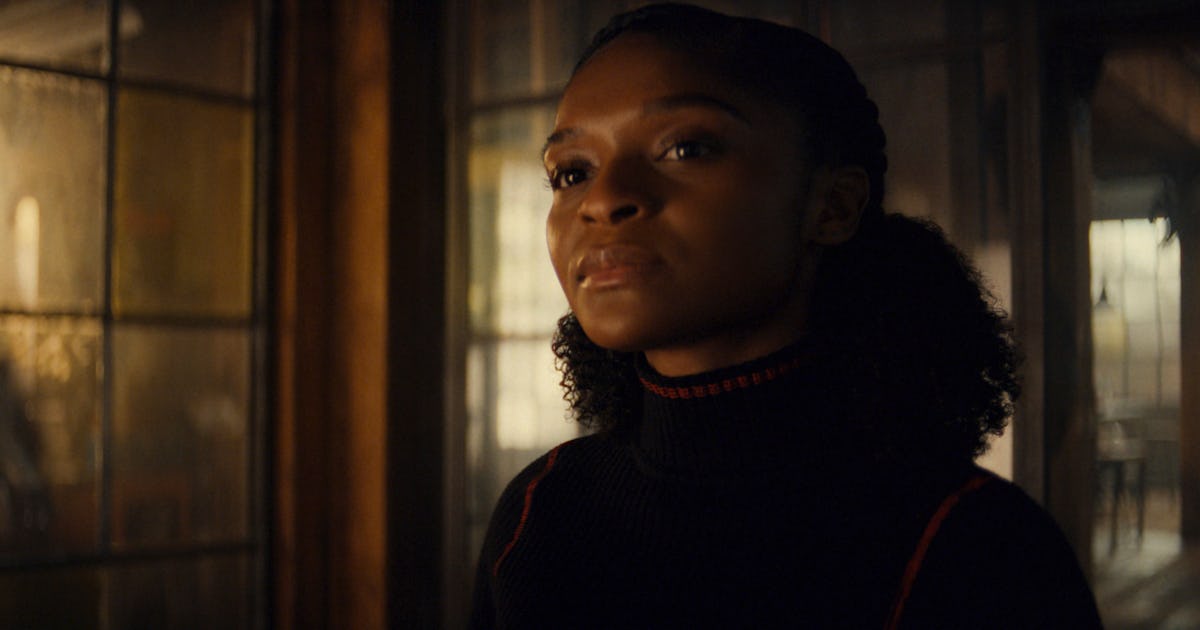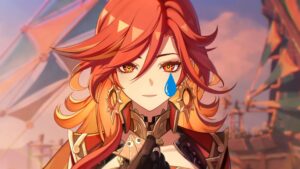When Tony Stark made the ultimate sacrifice in Avengers: Endgame, most Marvel fans were wringing their hands about the future of the franchise. The comics gave Iron Man a perfect successor in Riri Williams, who earns Tony’s attention after reverse-engineering his iron suit at MIT (all before turning 16, by the way). Though the characters never cross paths in the MCU, filling that void in Riri’s life was never a huge priority for Ironheart, especially for Sam Bailey, who produced and directed the show’s first three episodes.
“To me — I might get some hate about this — but it was never Tony’s story,” Bailey tells Inverse. “He never came into my mind, to be completely honest.”
Ironheart did need to rework Riri’s origins without Tony, but Bailey, showrunner Chinaka Hodge, and producer Ryan Coogler (who introduced Riri in Black Panther: Wakanda Forever) found power in Riri’s differences. “We were always trying to figure out what her version of this story was,” Bailey says. “What is it like to be a young Black girl who’s also a genius, who’s also ambitious, who is also afraid of all of those things within her?”
“No one’s all good or all bad.”
The answer to that hypothetical plays out across six episodes of Ironheart, with the first three episodes focused on breaking Riri down to her basic foundations. It all culminates with an explosive, action-packed heist in Episode 3, which brings our heroine to rock bottom. Riri will eventually pick herself up with a mixture of grit, resolve, and a bit of magic — but before Ironheart unveils its final three episodes, Bailey sits down with Inverse to unpack Riri’s complex ambitions and why they’re so important to the MCU.
This interview has been edited and condensed for clarity.
Sam Bailey and Dominique Thorne behind the scenes of Ironheart.
Marvel Studios
How did you land the gig directing Ironheart’s first three episodes?
I had to pitch. My rep just called me and asked me if I knew about Ironheart, and I was like, “The comic Eve [Ewing] wrote?” [Laughs] That’s all I knew about it. I met with some execs at Marvel and then some people at Proximity, and they pitched me on what they were trying to do — knowing that there was going to be a lot of homage to the comics, but also that we were going to go deeper and create our own version of Riri and her backstory. I put together a visual deck that I thought felt unique to me and my way, and they liked it.
What was on your deck? What comps or influences were you working with?
Okay, I’ll tell you this because I said it in the meeting and I meant it very genuinely, but it’s like I May Destroy You meets the first Fast and the Furious.
Love that.
I don’t care what you think about Fast and Furious now — when that movie first came out, we all wanted to be Letty. We all wanted to be part of that group! Everyone had their unique character that they really aligned with, even if they had a short amount of time on screen. And it was really important to make Parker’s crew more than just a goon squad, [but to] give them a unique character background.
Also, I was just really interested in the emotional journey of Riri and her family in Chicago, and building that out with a lot of care and allowing them to all be nuanced. The city is nuanced, the characters are nuanced; no one’s all good or all bad. That was really more important to me than even the action stuff, to be honest.
Bailey wanted Ironheart’s first arc to feel like “I May Destroy You meets the first Fast and the Furious.”
Marvel Studios
It’s a nice contrast to Riri’s first comic in Invincible Iron Man, before Eve took her on. [Brian Michael] Bendis was very much pitting her against Marvel’s heavy-hitters. She was working with Pepper Potts and S.H.I.E.L.D. — but I really wanted to see her with other Black people…
Yeah. What I think Eve did so cool in the comics is that she really got into the emotional weight that was put on Riri. What is it like to be a young Black girl who’s also a genius, who’s also ambitious, who is also afraid of all of those things within her? I wanted to make sure that we allowed space for that and allowed room for character development, which doesn’t always happen in the comics. We’re always trying to get to this plot, to that plot point… Also, I grew up in Chicago. I think I might move back to Chicago very soon. My version of Chicago, the people that were around me, very much reflect the way the cast has been set. This is what my world looks like. I don’t center whiteness in my life. So, it was nice to both pitch that and then for Kevin and others to be fine with it.
“I hope people can accept Ironheart, because we accept Tony down.”
Marvel’s kinda been missing that in its cinematic universe. I didn’t realize how much I needed this: it’s hard when you’re a stan for something that is not centering you or your lived experience.
Yeah, but we do it all the time. I’ve been taught subconsciously to empathize with white people my entire life through the content that I’ve consumed. Now that I am in a place where I can make more creative decisions in the work that I put out there, there’s no part of me that wants to continue that. It would be a shame to shoot something and say, “It’s in Chicago and it takes place all in Wrigleyville,” or something like that… though there are Black people in Wrigleyville — and not just Black people. Latinos too.
I grew up in Logan Square and Humboldt Park, and with that, I think of Manny [Montana] and Anthony [Ramos]. They remind me of the young men that I grew up with. So I was really excited to show that part of Chicago, too, and not hide the diversity within our city. It doesn’t mean that it is all perfect all the time, but it is still a big city where people are forced to be in community with each other for better or for worse. I wanted to show that.
The Hood’s relationship with John reflects the experiences of Chicagoans Bailey grew up with.
Marvel Studios
What I love about Riri is that she’s not perfect.
No, she’s not — and I don’t think she needs to be. Because there’s such a lack of representation of us on-screen, there is this need to show positive representation, and usually, what that ends up being is really flattened characters and narratives. I know that I’m not a perfect person. I know that I have allowed my ambitions to cloud my judgments a lot of the time. Riri is just trying to figure out how to show up for herself, and what that looks like when there’s no blueprint. When there’s no blueprint, you’re going to make mistakes. I think that’s okay.
And there are so many similarities between Riri and Tony there. I was so struck by her concerns with protecting her own. Like, Tony Stark, come get your daughter.
I hope people can accept this version of Ironheart, because we accept Tony down. We’re down for the ride for Tony, and if he’s allowed to take up all those different spaces and be colored in those many different shades, I think Ironheart should as well.
I really hope so too. That double standard between male and female characters is still so prevalent.
It’s very interesting to see the restraints that are put on us. Ultimately, I feel like they don’t think of us as human. For me, it is important that — because this is the canvas that I work in terms of television and directing and storytelling — I constantly push back against that, and not in a way to prove our humanity. I’m not interested in that. I want us to play and be nuanced, and give these actors a chance to do that too.
Ideally, Ironheart will challenge the ways we depict humanity in characters of color.
Marvel Studios
The past few years have felt really strange for representation. We saw this huge demand with Black Lives Matter, and now it feels like we’re living through this pushback, at least from the outside looking in. I was curious what it’s felt like from the inside, working this past decade as one of a handful of Black female directors in these spaces.
I think what you’re picking up on is very much what’s going on. I directed and produced a web series called Brown Girls, and that’s what got me into Hollywood. So there was already a bit of tokenism from the beginning. There was this thing of wanting to get the artists of color in, especially Black people. Now I think they — and by “they,” I mean the powers that be — I don’t think they feel any pressure or need to hold up any type of mandate.
From what I’m seeing, there’s a real divide on who gets to tell stories, whose stories get to be told, what actors and creators have value. The conversation around Sinners was so f*cking crazy to me. I was not ready for that. I was mad when Woman King didn’t get any accolades. I almost quit around that time. Because [Gina Prince-Bythewood] is giving y’all exactly what you say you want… If she can’t get the respect that she deserves, what am I even doing right now? I mean, I really did feel like that for a while.
“You can drown in this search for power.”
What made you decide to stick it out?
I’m as stubborn as Riri is, and I hate for someone to tell me I can’t do nothing. I feel like this is my birthright. My mom wanted to be a writer when she was young. She passed when I was 18. My father wanted to be a photographer, and I didn’t go to film school. I stumbled into this — but it feels like I’m doing exactly what they would have done or could have if they realized it was even an option for them, or if the doors were open for them. Either they’ve been open for me or I’ve kicked them down, and I just refused to give up on it, I think.
Ironheart Episode 3 takes Riri to the brink, but they also “key up the next half of the series.”
Marvel Studios
The end of Episode 3 is a rude awakening for Riri. She’s jeopardized the lives of everyone on her team — one has died because of her. Then Joe, she’s set him on a path that he did not want to be on. I guess I would love to know what went into bringing Riri to this point.
So much of it’s on the page. So much of it is Chinaka Hodge making sure that we were on this emotional journey that would end on a low in terms of what happened, but also key up the next half of the series. We get to understand the environment Riri comes from. We get to understand the people she comes from. We get to understand the ambition — and then we gotta get to a point that she lets Cousin John die, and what that means to everyone.
What we were constantly going back to is earning that moment, and the moment with her and N.A.T.A.L.I.E. To me It just felt so real that you can get caught up — and not just caught up, but you can drown in this search for power, drown in this search for your ambition being validated. It’s really just all coming at her at once. I don’t think that people are going to assume that Cousin John goes out the way he does, but it made sense. She has to make that decision between herself and him.
I really appreciate the risks Ironheart takes with Riri’s arc. It feels different than other origin stories in the MCU, where everyone has a mentor. Riri doesn’t have an Avenger to call, but she’s not alone: she has the support of these Black women around her… even if one is AI.
Isn’t that the story of Black women? We have to look and lean on community, or look and lean on ancestors who’ve done it before. We just have to take that and feel that energy and try to just take the next best step forward.
Riri may not have a mentor in Tony, but she’s beginning to build her own support system.
Marvel Studios
What’s your hope for these first three episodes? Who are you hoping to reach?
There’s a part of me that’s like, “Yeah, I’m giving it to God. It is out there. I just want it to be out there so people know I made something years ago.” There’s also a part of me that just wants people who are a fan of stories of Chicago, of action, of sci-fi. I want us to be excited about it, and I want people who aren’t us to also be excited about it and to be down for the ride.
I just think that we do ourselves a disservice if we put this show in a box without giving it its time and its due and its respect and its care, because it was made with a lot of that in mind, and it wasn’t made to exclude anybody. I’m really hoping that people receive it in that way.
Ironheart is now streaming on Disney+.
Source link
TV Shows,Superheroes,Marvel Universe,streaming,disney,marvel-cinematic-universe,tv-shows,disney-plus,entertainment,inverse-interview,tv-movie-director-interviews,ironheart,homepage,adex-light-bid




Average Rating